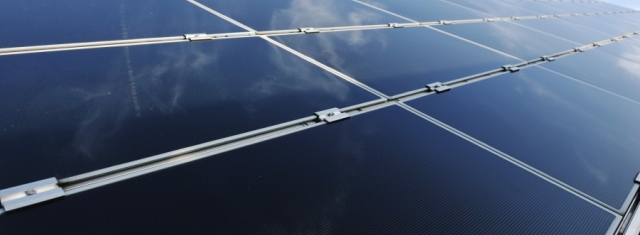Business
What is a Virtual Power Purchasing Agreement (VPPA)?
What is a VPPA?

USPA NEWS -
Virtual Power Purchase Agreements (VPPAs) have emerged as an innovative way for corporations and organizations to support renewable energy projects while reducing carbon emissions. Here's everything you need to know about VPPAs and their advantages and challenges.
A virtual power purchase agreement (VPPA) is a contract between a renewable energy project developer and an off-taker, typically a corporation or organization, in which the off-taker agrees to purchase a set amount of electricity generated by the renewable energy project. VPPA's have become increasingly popular in recent years as a way for corporations and organizations to support the development of renewable energy projects and reduce their carbon emissions.
VPPA's differ from traditional power purchase agreements (PPA's) in that the electricity purchased through a VPPA is not delivered directly to the off-taker. Instead, the renewable energy project developer sells the electricity to the grid, and the off-taker receives a credit for the amount of electricity generated by the renewable energy project. This allows the off-taker to support the development of renewable energy without making any changes to its own energy infrastructure.
VPPA's differ from traditional power purchase agreements (PPA's) in that the electricity purchased through a VPPA is not delivered directly to the off-taker. Instead, the renewable energy project developer sells the electricity to the grid, and the off-taker receives a credit for the amount of electricity generated by the renewable energy project. This allows the off-taker to support the development of renewable energy without making any changes to its own energy infrastructure.
One key advantage of VPPA's is that they provide a stable source of revenue for renewable energy project developers. This can make it easier for developers to secure financing for their projects and can ultimately lead to the development of more renewable energy projects. VPPA's also allow off-takers to support the development of renewable energy without incurring the costs associated with building and maintaining their own renewable energy infrastructure.
Another advantage of VPPA's is that they can help off-takers meet their renewable energy and carbon reduction goals. Many corporations and organizations have set ambitious targets for reducing their carbon emissions, and VPPA's can provide a way for them to achieve these goals. VPPA's also allow off-takers to support the development of renewable energy in specific regions or to support specific technologies, such as wind or solar power.
Another advantage of VPPA's is that they can help off-takers meet their renewable energy and carbon reduction goals. Many corporations and organizations have set ambitious targets for reducing their carbon emissions, and VPPA's can provide a way for them to achieve these goals. VPPA's also allow off-takers to support the development of renewable energy in specific regions or to support specific technologies, such as wind or solar power.
There are several challenges associated with VPPA's, however. One challenge is that the pricing of VPPA's can be complex and can vary depending on a number of factors, such as the location of the renewable energy project and the technology used. This can make it difficult for off-takers to accurately predict the costs associated with a VPPA.
Another challenge is that the credit that off-takers receive for the electricity generated by a renewable energy project through a VPPA may not be recognized by regulators in the same way as electricity that is directly consumed. This can make it difficult for off-takers to use VPPA's to meet their renewable energy and carbon reduction targets.
Despite these challenges, VPPA's represent an important tool for supporting the development of renewable energy and for helping off-takers reduce their carbon emissions. As the renewable energy industry continues to grow, it is likely that VPPA's will become an increasingly important part of the energy landscape.
Another challenge is that the credit that off-takers receive for the electricity generated by a renewable energy project through a VPPA may not be recognized by regulators in the same way as electricity that is directly consumed. This can make it difficult for off-takers to use VPPA's to meet their renewable energy and carbon reduction targets.
Despite these challenges, VPPA's represent an important tool for supporting the development of renewable energy and for helping off-takers reduce their carbon emissions. As the renewable energy industry continues to grow, it is likely that VPPA's will become an increasingly important part of the energy landscape.
Virtual Power Purchase Agreement Renewable Energy Off-taker Carbon Emissions Stable Revenue Pricing Regulators Energy Infrastructure Wind Power Solar Power Energy Landscape
Liability for this article lies with the author, who also holds the copyright. Editorial content from USPA may be quoted on other websites as long as the quote comprises no more than 5% of the entire text, is marked as such and the source is named (via hyperlink).





